The low-carbon transformation of the power system has become a crucial component of China’s strategy for carbon peaking and carbon neutrality. The construction of a new
type
power system with a high proportion of new energy will play a key role in achieving carbon peaking and carbon neutrality goals. China and Korea have complementary advantages in renewable energy research. To promote academic exchanges between China and Korea in the integration of a high proportion of renewable energy into power systems, the Department of Electrical Engineering
and Applied Electronics (EEA)
at Tsinghua University hosted the China-Korea
Joint
Forum on “
Extremely
High Renewable Energy
Penetrated
Power System
under Carbon Neutrality
Target
” from December 13 to 15. This bilateral academic forum is the 12th session of the China-Korea Bilateral Academic Seminar on “Grid-Adaptive Renewable Energy Technology” and the first offline forum after three years of online forums. The forum received joint sponsorship from the National Natural Science Foundation of China (NSFC) and the National Research Foundation of Korea (NRFK).
The forum attracted more than 50 researchers from 12 Chinese universities, including Tsinghua University, Huazhong University of Science and Technology, North China Electric Power University, Zhejiang University, Shanghai Jiao Tong University, Chongqing University, Shandong University, Wuhan University, Peking University, Hong Kong University, Northeast Electric Power University, and Hohai University. Twelve researchers from five Korean universities and institutions, including Yonsei University, Korea University, Konyang University, Sangmyung University, and the Korea Institute of Energy Technology Evaluation and Planning, also participated. The forum was chaired by Professor Kang Chongqing from the Department of Electrical Engineering and Applied Electronics at Tsinghua University and co-chaired by Professor Kyeon Hur from Yonsei University. The secretaries for the forum were Assistant Researcher Guo Hongye from the Department of Electrical Engineering and Applied Electronics at Tsinghua University and Professor Minhan Yoon from Konyang University.
During the conference, in-depth discussions were held on the planning and operation of ultra-High Renewable Energy Penetrated power systems under carbon neutrality goals, as well as the latest research findings in the areas of protection and control. The forum consisted of six sub-forums with specific themes, including Renewable Energy Planning for Carbon Neutrality, Control and Protection of High Renewable Energy Penetrated Power Systems, Operation Planning of High Renewable Energy Penetrated Power Systems, Flexibility of High Renewable Energy Penetrated Power Systems, Dynamic Analysis of Power Systems with High Proportion of Power Electronics Devices, and Operation of Extremely High Renewable Energy Penetrated Power Systems.
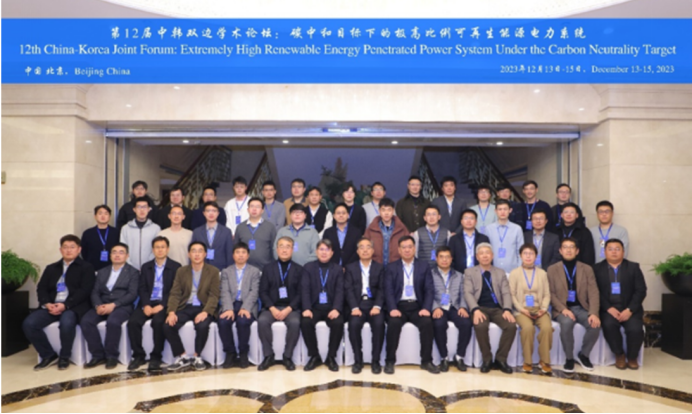
Group photo of the China-Korea Joint Forum
On the morning of the 14th, the forum opened with opening remarks from the Chinese convener, Professor Kang Chongqing, and the Korean convener, Professor Kyeon Hur, to welcome the participants from both China and Korea and express expectations for the conference to provide a platform for academic exchange.
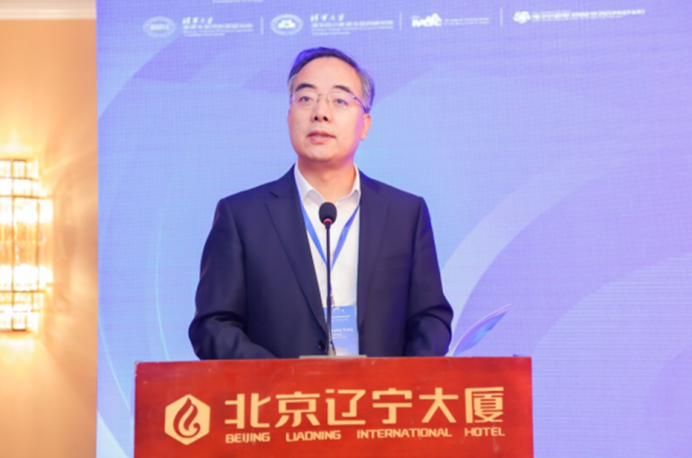
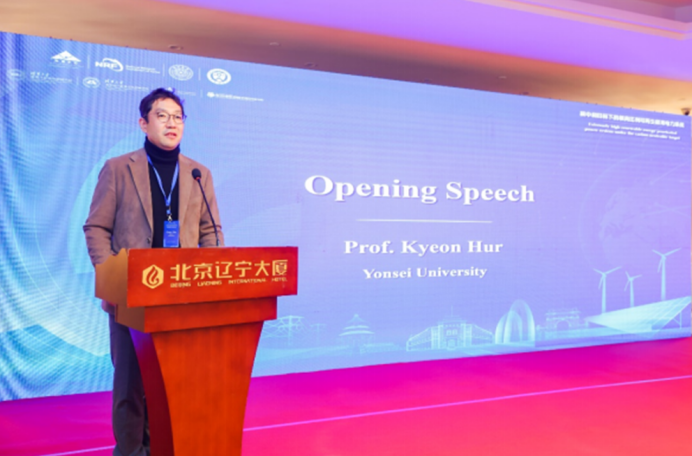
Chinese and Korean conveners delivered opening speeches
Following the opening ceremony, Professor Ding Yi from Zhejiang University chaired Sub-Forum 1 on the theme of “Carbon Neutrality and High Renewable Energy Penetration”. During this session, academic presentations were given by Professor Chen Xinyu from Huazhong University of Science and Technology, Professor Gilsoo Jang from Korea University, Professor Yan Zheng from Shanghai Jiao Tong University, and Professor Kyeon Hur from Yonsei University on topics such as “Opportunities for Deep Decarbonization Transformation through Sino-Korean Cooperation”, “Research on Resilient Autonomous Grids”, “Flexible Resource Scheduling for Safe Access of Renewable Energy”, and “New Modeling, Analysis, and Control of Future Zero-Carbon Grids”, respectively.
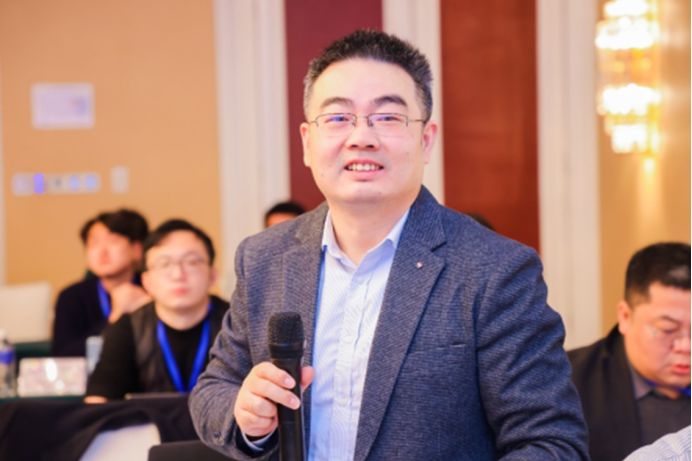
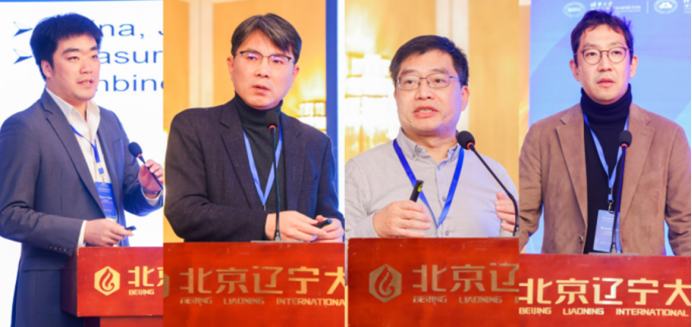
Sub-forum 1 “Carbon Neutrality and High Renewable Energy Penetration”
Sub-Forum 2, focusing on “Control and Protection of High Renewable Energy Penetrated Power Systems”, was chaired by Professor Minhan Yoon from Konyang University. During this session, presentations were delivered by Professor Yan Gangui from Northeast Electric Power University, Professor Yong Cheol Kang from Yonsei University, and Professor Lin Tao from Wuhan University, covering topics such as “Analysis and Suppression Strategies for Sub-Synchronous Oscillations Induced by Permanent Magnet Synchronous Generators in Wind Power Plants”, “Frequency Smoothing Method for Variable-Speed Wind Turbine Generators Based on PI Control Loop”, and “Small Signal Stability Analysis of Hybrid Stations with Renewable Energy Generation Units in Power Systems”.
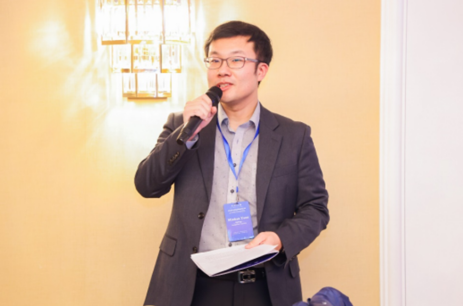
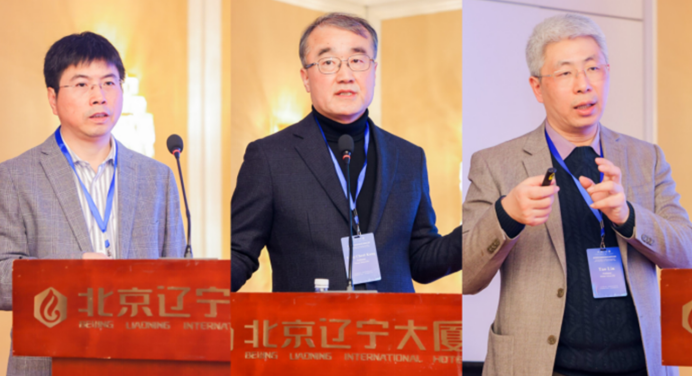
Sub-forum 2 “Control and Protection of High Renewable Energy Penetrated Power Systems”
In the afternoon of the 14th, Professor Zhou Ming from North China Electric Power University chaired Sub-Forum 3 on the theme of “Operation Planning of High Renewable Energy Penetrated Power Systems”. During this session, presentations were given by Professor Gyusub Lee from the Korea Institute of Energy Technology Evaluation and Planning, Professor Yang Zhifang from Chongqing University, Professor Jaewoong Shim from Sangmyung University, and Researcher Ye Chengjin from Zhejiang University, covering topics such as “Reactive Power Control Considered in Transmission Network Renewable Energy Capacity Planning”, “Efficient Discrete Optimization in Renewable Energy Power Systems”, “Evaluation of Grid-Incorporated Device Proportion in Power Systems Based on Critical Inertia Energy Calculation”, and “Distributed Renewable Energy Integration Planning”.
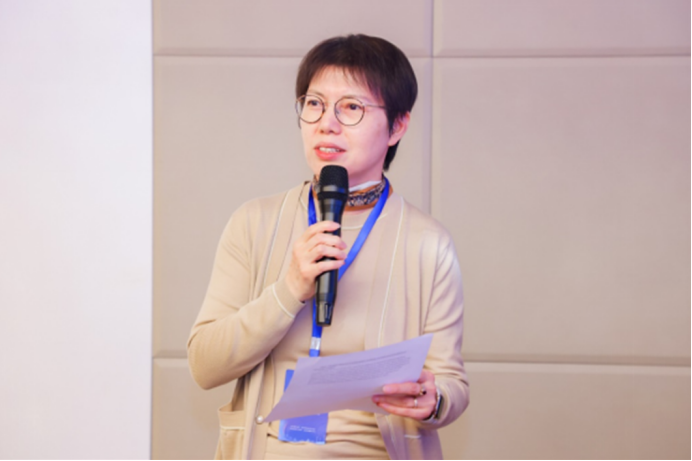
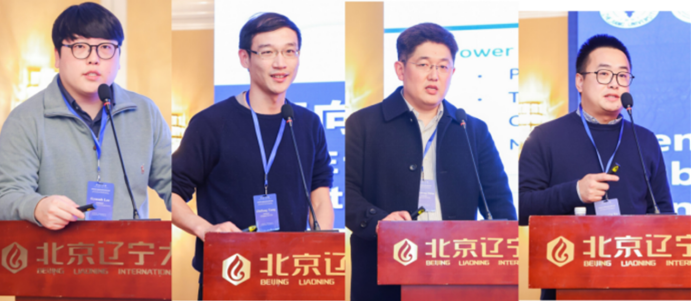
Sub-forum 3 “Operation Planning of High Renewable Energy Penetrated Power Systems”
Professor Sungyun Choi from Korea University chaired Sub-Forum 4, focusing on the “Flexibility of High Renewable Energy Penetrated Power Systems”. During this session, presentations were delivered by Professor Sungyun Choi, Professor Sun Mingyang from Zhejiang University, Professor Minhan Yoon from Konyang University, Assistant Professor Wang Yi from Hong Kong University, and Professor Jaeyeop Jung from the Korea Institute of Energy Technology Evaluation and Planning. The topics covered included “Three-Stage Flexibility Acquisition of Radial Distribution Networks Considering Uncertainty”, “Artificial Intelligence-Based Optimization and Control of Power Systems”, “Flexible Operation and Control of Power Systems with High Penetration of Renewable Energy”, “Making Smart Meters Truly Smart: A Joint Split Learning Approach for Device-Side Load Prediction”, and “Frequency Response Resource Design in Low Inertia Systems”.
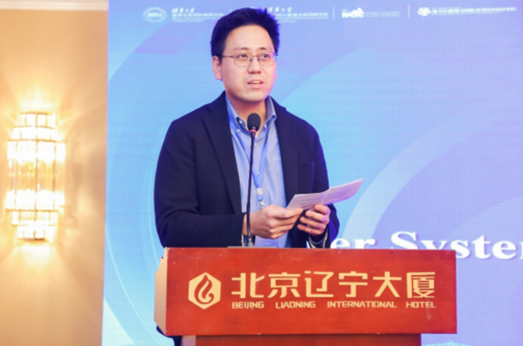
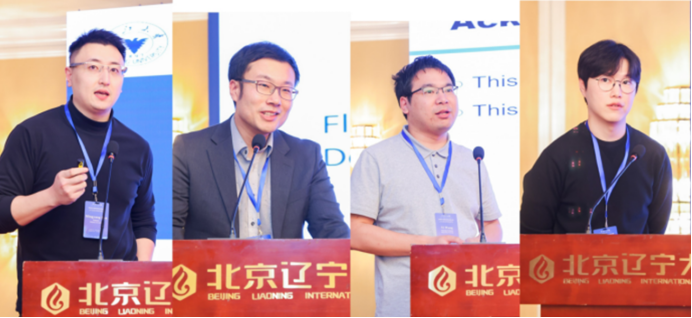
Sub-forum 4 “Flexibility of High Renewable Energy Penetrated Power Systems”
On the morning of the 15th, Professor Qu Ronghai from Huazhong University of Science and Technology chaired Sub-Forum 5, focusing on the “Dynamic Analysis of Power Systems with High Proportion of Power Electronics Devices”. During this session, presentations were given by Postdoctoral Researcher Shi Bochen from Tsinghua University, Postdoctoral Researcher Sung Hoon Lim from Yonsei University, and Doctoral Student Gao Xinhong from Huazhong University of Science and Technology, covering topics such as “Discrete State Event-Driven Modeling and Simulation of Power Electronic Systems Across Multiple Time Scales”, “Review on Frequency Stability of High Renewable Energy Penetrated Power Systems”, and “Superconducting Wind Turbine Generator”.
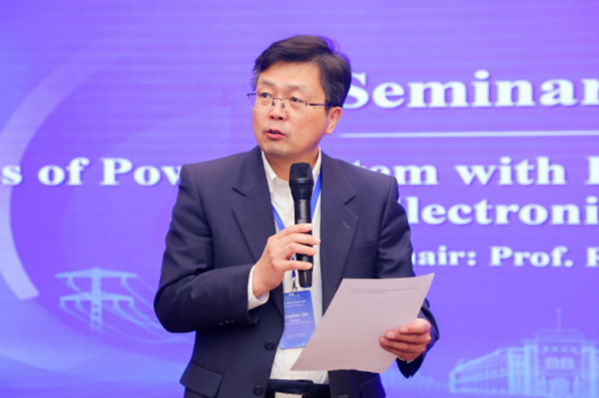
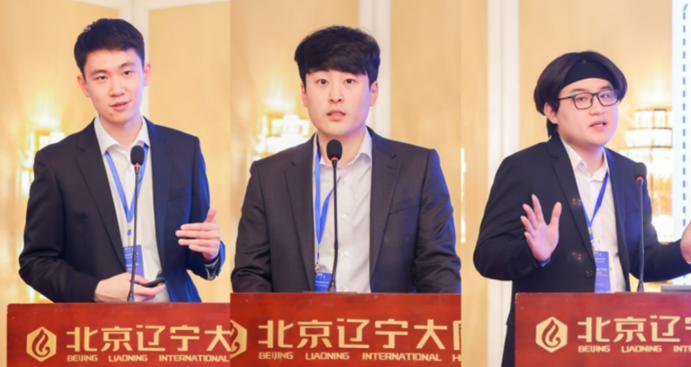
Sub-forum 5 “Dynamic Analysis of Power Systems with High Proportion of Power Electronics Devices”
Professor Yong Cheol Kang from Yonsei University chaired Sub-Forum 6, focusing on the “Operation of Ultra-High Renewable Energy Penetrated Power Systems”. During this session, presentations were delivered by Postdoctoral Researcher Gao Feng from Peking University, Doctoral Student Sungwoo Kang from Korea University, and Lecturer Zhang Tiance from North China Electric Power University, covering topics such as “Prediction-Regulation Framework for Portable Energy Storage Operation in High Renewable Energy Penetrated Power Systems”, “Renewable Energy-Driven Power System Operation”, and “Research on Coordinated Operation Method of Ultra-High Renewable Energy Penetrated Power Systems Based on Feasible Domain Projection Theory”.
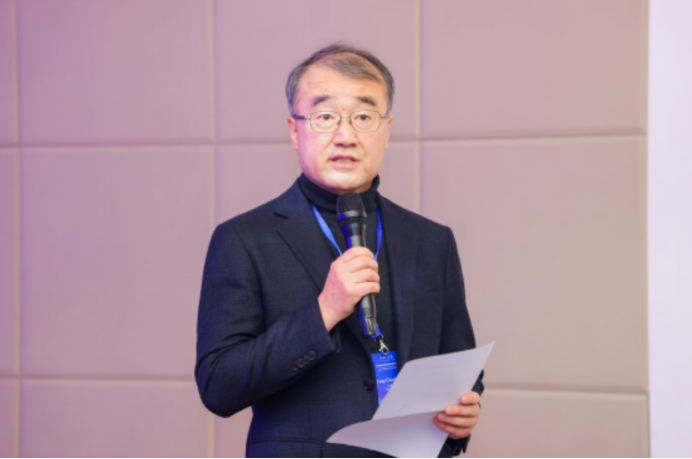
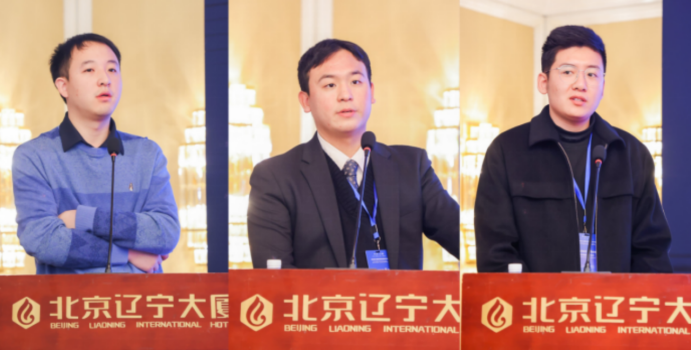
Sub-forum 6 “Operation of Ultra-High Renewable Energy Penetrated Power Systems”
After the conclusion of the six sub-forums, Professor Gilsoo Jang from Korea University presided over a discussion among participants on future exchange and collaboration between the two sides and discussed preliminary plans for the next China-Korea Bilateral Academic Conference.
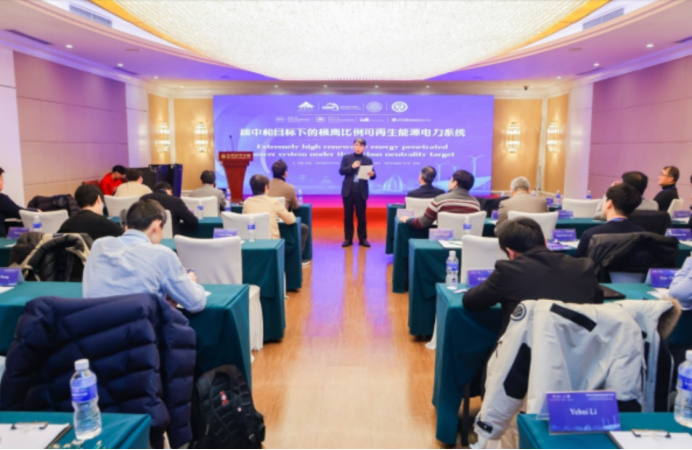
Participants discussed plans for the next China-Korea Academic Seminar
Appendix: Introduction to the China-Korea Academic Seminar on “Grid-Adaptive Renewable Energy Technology”
In November 2011, Professor Kang Chongqing from Tsinghua University was invited to give a lecture at Chonbuk National University, introducing the development of wind power in China and engaging in lively discussions with faculty and students. From October 22 to 23, 2012, more than ten Chinese professors and scholars from Tsinghua University, Northeast Electric Power University, North China Electric Power University, Shandong University, and Hohai University were invited to attend the first “Grid-Adaptive Wind Power Technology” China-Korea Academic Seminar held on Jeju Island, South Korea. More than 20 Korean scholars from Seoul National University, Chonbuk National University, Hanyang University, Lingnan University, and Korea University participated in extensive discussions and exchanges on topics such as wind turbine control and protection, wind power planning, and wind power measurement and control technology. The participants also visited the wind and photovoltaic power generation demonstration project in Hangwon, Jeju Island. This meeting laid a solid foundation for long-term cooperation between the two sides. In mid-December of the same year, Professor Yong-Cheol Kang, along with two other professors from Korea’s Chonbuk National University, visited several Chinese universities, including Tsinghua University, North China Electric Power University, Northeast Electric Power University, Shandong University, Shanghai Jiao Tong University, and Hohai University, and signed cooperation memoranda with each university.
Since then, the theme of the China-Korea Academic Seminar has gradually expanded from wind power to include renewable energy, including wind and photovoltaics. From 2012 to 2022, China and Korea have taken turns hosting the China-Korea Academic Seminar on “Grid-Adaptive Renewable Energy Technology” each year, totaling 11 sessions. The annual meeting schedule is as follows. Due to the impact of the pandemic, the 9th to 11th sessions of the China-Korea Academic Seminar were held in a hybrid online and offline format.
SN |
Date |
Place |
University |
Convener |
1 |
Oct. 22-23, 2012 |
Jeju Island |
Jeonbuk National University |
Prof. Yong-Cheol Kang |
2 |
Oct. 8-10, 2013 |
Beijing, China |
Tsinghua University |
Prof. Kang Chongqing |
3 |
Oct. 19-21, 2014 |
Seoul, Korea |
Korea University |
Prof. Byongjun Lee |
4 |
May 27-29, 2015 |
Jeonju, Korea |
Jeonbuk National University |
Prof. Yong-Cheol Kang |
5 |
May 18-20, 2016 |
Wuhan, China |
Huazhong University of Science and Technology |
Prof. Qu Ronghai |
6 |
Nov. 16-19, 2017 |
Seoul, Korea |
Yonsei University |
Prof. Kyeon Hur |
7 |
Oct. 24-27, 2018 |
Hangzhou, China |
Zhejiang University |
Prof. Ding Yi |
8 |
Nov. 14-16, 2019 |
Seoul, Korea |
Korea University |
Prof. Gilsoo Jang |
9 |
Nov. 5-6,2020 online & offline |
Ji’nan, China |
Shandong University |
Prof. Wang Hongtao |
Seoul, Korea |
Yonsei University |
Prof. Kyeon Hur |
10 |
July 22-23, 2021 online & offline |
Beijing, China |
North China Electric Power University |
Prof. Zhou Ming |
Seoul, Korea |
Yonsei University |
Prof. Jungwook Park |
11 |
Dec. 29, 2022 online & offline |
Seoul, Korea |
Korea University |
Prof. Gilsoo Jang |
Beijing, China |
Tsinghua University |
Prof. Kang Chongqing |
This forum is the 12th session of the series of academic seminars, with the theme “Extremely High Renewable Energy Penetrated Power System under Carbon Neutrality Target”. It aims to facilitate exchanges in renewable energy research through a bilateral academic conference, fully understanding each other’s experiences and advantages in the grid incorporation, operation, and planning of high proportions of renewable energy. The collaboration will provide strong support for the development of grid-connected and accommodating technologies for renewable energy on both sides, jointly promoting the renewable energy development goals of China and Korea.

















 News & Events
News & Events